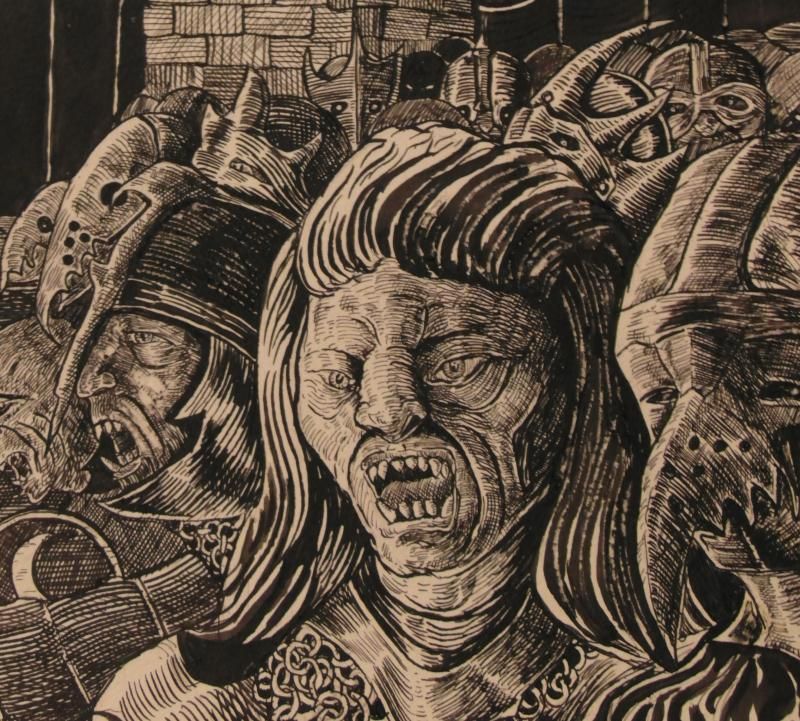|
Bit of thread necromancy but here goes.
First off I make a living out of discussing these matters and will happily put my tuppence worth in.
The Hobbits have a post service, clocks, tobacco, tea, coffee etc that is slightly out of place in the rest of Middle-earth. However, look at it like this. The Elves are very much like the folklore tales of Faerie or the Otherworld where time seems not to move at all and indeed it is seemingly stuck. Things such as a postal service or clocks are not needed there at all. The Hobbits are more rustic than Gondorians and not warlike or as accustomed to the hardships of, for instance, the Rohirrim. In fact war hasnt affected them very much and as a result they have a world of peace without the hustle and bustle of defending their own borders. If you look at Tolkien's generation, the Hobbits are the epitome of folk who are seemingly ignorant, or comfortably unaware of the existence of the struggles of the outside world: the notion of orcs and dragons and a shadow in the east are passed off as fairy stories that the likes of Queer old Bilbo are interested in. If you look deeper you can see that the Hobbit is the little person. The ordinary lad sent off on a whole new adventure and that their comforts of clocks and post offices and quaint tea in the afternoon doesnt prepare them for life in the wider world. Both Bilbo and Sam thought the first mountains they saw were the mountains (Lonely mountain and Amon-Amarth respectively). This wider world is revealed to us through their eyes with wonder and terror, much like the soldiers of ww1 and ww2 going off for their own adventures only to find that they would rather have stayed at home. As a result we have the hobbits as the everyman or the layman who we can relate to. Imagine if we didnt have the down to earth Sam. We would have the stuffy wizard, the dreamy elf, the cocky king in hiding, the arrogant dwarf etc etc. We can also see the inclusion of the anachronisms on another level. Tolkien was a scholar of languages and an expert in Old English, Norse, Icelandic and Germanic myths and literature. He himself describes himself as a Hobbit. We are looking and recording what we see through his eyes in order to collect the tales for the red book of westmarch: we are looking from our modern point of view backwards to a greater age when sacrifices are made, songs honour fallen warriors. There is still magic in the woods. There is still green and quiet in the world and we the reader are being taken on a quest to rid the world of the very things that will destroy what we love. We cannot do it in real life but we can in fiction. So Tolkien reading the stories of Gunnalug the Wormtongue, Erik the Red, The Poetic Edda etc etc is viewing and rejoicing in a long lost age. In the Lord of the Rings we are being taken there and the anachronisms serve to make us feel familiar with the Shire as it has much of what we can recognise such as tea, coffee, post, tobacco. And it makes it more engaging and believable and exciting.
In essence, Tolkien hated change and the drive to modernity. So his works were a great place to take the best of his own lifetime and mix it with the age of heroes!
Phew!
|
 Top
Top Top
Top Top
Top Top
Top Top
Top Top
Top Top
Top






